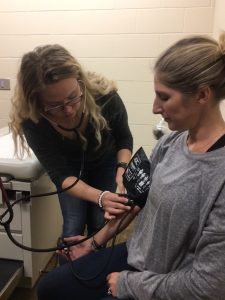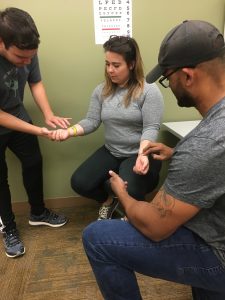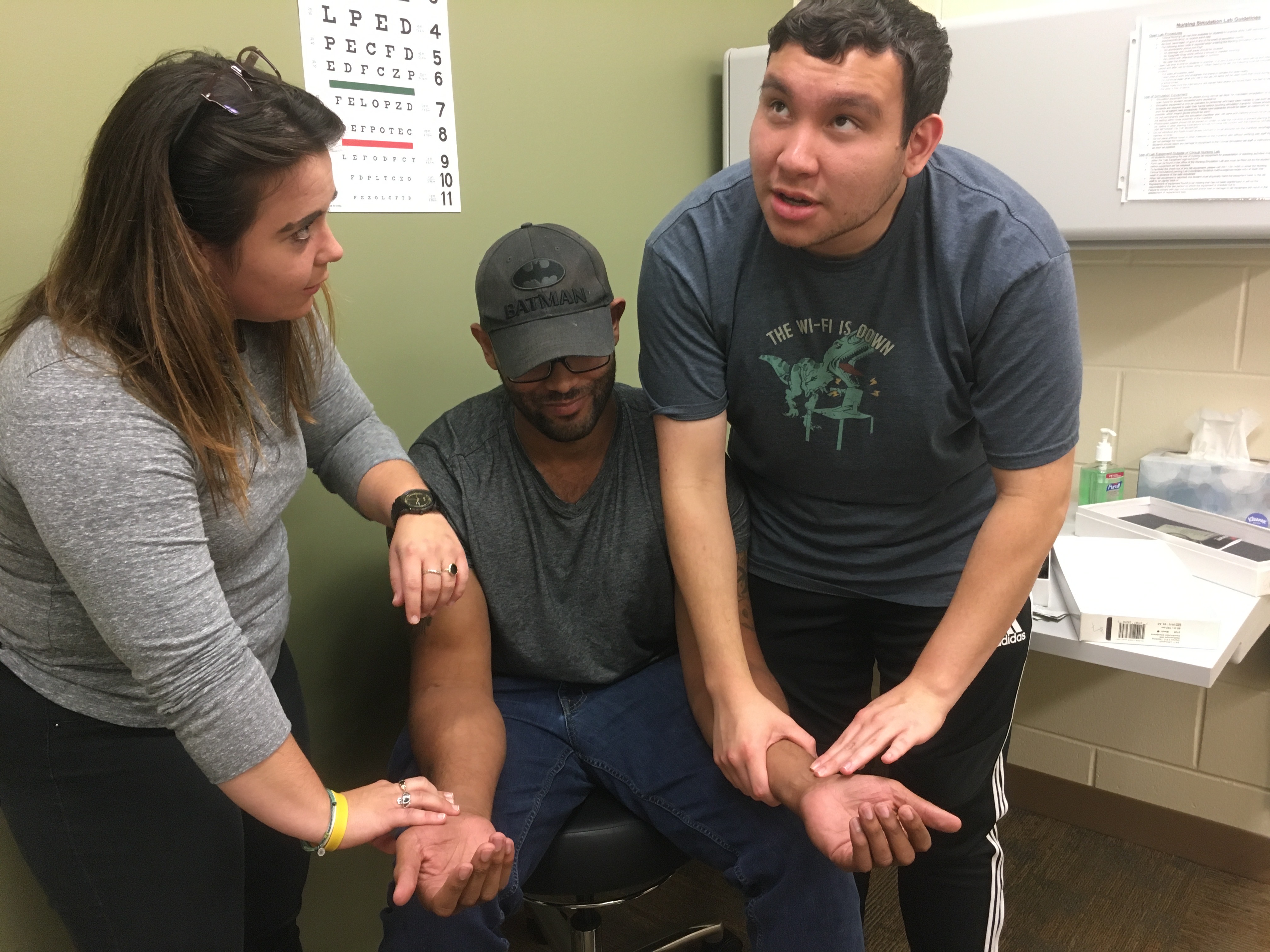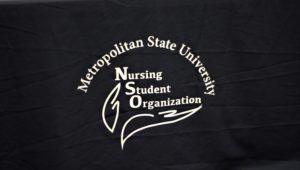Julie Walling
Share:
It’s hard, but sometimes necessary, to hold a job and go to college at the same time. This is especially true here at Metropolitan State University, where most of the students are older and may have a family to provide for.
There is one exception: nursing students across Minnesota are cautioned against working while in their program. However, flexible hours and direct medical experience make part-time Personal Care Assistant (PCA) positions a good employment option for nursing students.
In-home PCAs can have varying hours, depending on client needs. Sometimes they work long hours, such as for an overnight shift. In other cases, clients only need help for an hour or so with showering or other morning routines. Some clients only need assistance a couple days a week.
Brenda Merrill, associate professor of nursing faculty, knows students are not always capable of going without a job. “We understand students often need to work for a variety of reasons… but… It is very difficult to manage a complex curriculum with a lot of clinical hours. For example, the current course I am team teaching requires 135 clinical hours in one semester, and that does not include theory lectures and required lab hours,” she said.
Normally, a nursing student takes a licensure exam after completing their two-year degree and could work as a nurse while getting their bachelor’s from a different program or school. However, Metro State has the Minnesota Alliance for Nursing Education (MANE) BSN program which allows students to go towards their four-year nursing degree without already possessing a license.
If nursing students wish to work in the medical field before licensure, they must find another way.

Merrill added, “I would always recommend students consider either the certified nursing assistant role or a personal care assistant. Some students feel they need that extra experience above the clinical hours associated with their program to increase their confidence and knowledge.”
Nursing students indicated that being a PCA can help develop bed-side manner skills. One student of the Doctorate of Nursing Program and a former PCA spoke about the higher level of understanding which comes from being closely associated with a client’s daily life. She mentioned forming connections with clients as a PCA helps prepare nursing students for work after graduation.
Another student, currently pre-nursing and minoring in psychology, relayed her time as a PCA for her own mother. Having personal experience as a relative of someone needing a PCA allowed her to see both sides of the client-caregiver relationship.

This student, who prefers to remain anonymous, applies the knowledge gained from her psychology minor as well as her personal experiences towards developing a greater sense of empathy for how clients are mentally affected. She would even recommend the position to non-nursing majors for the worthwhile feeling from helping those in need.
There are a multitude of companies in Minnesota which employ and place PCAs and are looking for qualified, dedicated workers.
For available PCA opportunities, visit All Home Health Inc.




